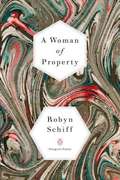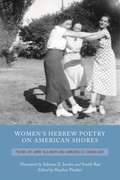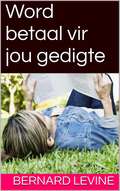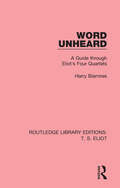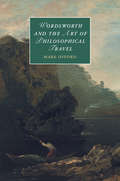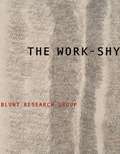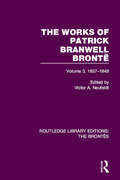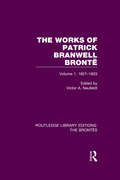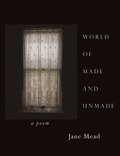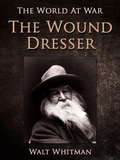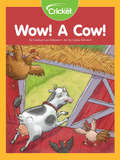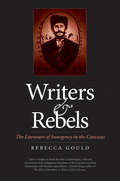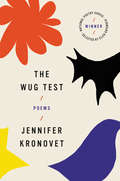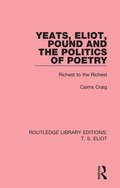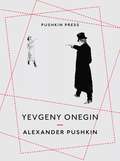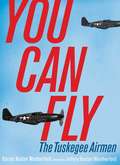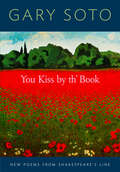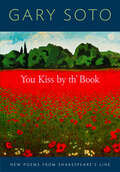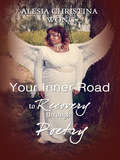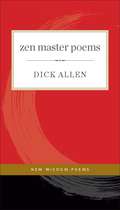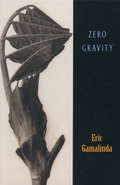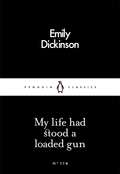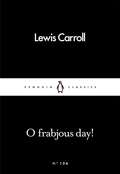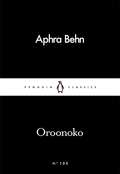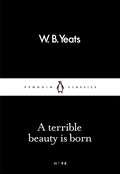- Table View
- List View
A Woman of Property
by Robyn SchiffA new book from a poet whose work is "wild with imagination, unafraid, ambitious, inventive" (Jorie Graham)Located in a menacing, gothic landscape, the poems that comprise A Woman of Property draw formal and imaginative boundaries against boundless mortal threat, but as all borders are vulnerable, this ominous collection ultimately stages an urgent and deeply imperiled boundary dispute where haunting, illusion, the presence of the past, and disembodied voices only further unsettle questions of material and spiritual possession. This is a theatrical book of dilapidated houses and overgrown gardens, of passageways and thresholds, edges, prosceniums, unearthings, and root systems. The unstable property lines here rove from heaven to hell, troubling proportion and upsetting propriety in the name of unfathomable propagation. Are all the gates in this book folly? Are the walls too easily scaled to hold anything back or impose self-confinement? What won't a poem do to get to the other side?From the Trade Paperback edition.
Women's Hebrew Poetry on American Shores: Poems by Anne Kleiman and Annabelle Farmelant
by Shachar Pinsker Adriana X. Jacobs Yosefa RazAlthough Anne (Chana) Kleiman--who died in 2011 at the age of 101--was the first American-born Jewish woman to publish poems in Hebrew, and Annabelle (Chana) Farmelant--who is still living and occasionally publishing--wrote a substantial body of Hebrew verse from the 1940s to the 1960s, their work is virtually unknown today, even to those familiar with Hebrew literature in America. In Women's Hebrew Poetry on American Shores: Poems by Anne Kleiman and Annabelle Farmelant, editor Shachar Pinsker recovers the singular voices of these women, introducing their captivating and wide--ranging poetry and placing it in its historical, literary, and cultural contexts. Women's Hebrew Poetry on American Shores presents a bilingual edition of Kleiman and Farmelant's work in a large range of themes, moods, and styles, translated into English for the first time by Adriana X. Jacobs and Yosefa Raz. It includes Kleiman's poems that were collected and published in a 1947 U.S. volume and a selection from two of Farmelant's poetry books, published in Jerusalem in 1960 and 1961. The translators have furnished the poems with copious notes, illuminating linguistic and cultural sources of the poetry and making it more accessible to contemporary readers. Pinsker introduces the volume with a background on the poets' lives and work and a look at the state of Hebrew literature in the first half of the twentieth century. The volume also includes an unpublished essay by Anne Kleiman, addressing Hebrew poet Anda Pinkerfeld and her poetic work, which sheds an important light on the dialogue between women's Hebrew poetry written in American and in Palestine during the same period. Readers and scholars of Jewish, American, and Hebrew literature and cultural history, as well as those interested in poetry, gender, and women's studies will enjoy this unique bilingual edition.
Word betaal vir jou gedigte
by Elmarié Smal Bernard LevineSkryf jy gedigte? Nou, kan jy betaal word vir die gedigte wat jy skryf en dit kan ook gepubliseer word in kaartjies, kalenders, plakkate en muurbehangsels. As jy jou skrywersdrome wil bewaarheid en terselfder tyd ook vergoed word vir jou gedigte, is hierdie unieke boek spesiaal vir jou. Om gedigte te skryf vir geld is groot pret en baie winsgewend! Word betaal om te doen waarvan jy hou.
Word Unheard: A Guide Through Eliot's Four Quartets
by Harry BlamiresEliot’s Four Quartets is arguably the finest long poem in modern English literature. It is also one that presents considerable problems of interpretation. In Word Unheard, first published in 1969, Blamires aims to unravel some of these problems by guiding the reader line by line through the poem, blending paraphrase with commentary. Blamires pays particular attention to the philosophical and theological dimensions of the poem and to its multifarious personal, historical and literary allusions. This title will be of interests to students of literature.
Wordsworth and the Art of Philosophical Travel (Cambridge Studies in Romanticism)
by Mark OffordAt the heart of Wordsworth's concerns is the question of how travel - both foreign and everyday - might also become an adventure into philosophy itself. This is an art of travel both as an approach to experience - one that draws on habits in order to revise them in the shock of new - and as a poetic approach that gives voice to the singular and foreign through the unique shapes of verse. Close readings of Wordsworth's 'pictures of Nature, Man, and Society' show how the natural is entangled with - and not simply opposed to, as many critics have suggested - the social, the political and the historical in this verse. This book draws on both eighteenth-century anthropology and travel literature, and debates in modern critical theory, to highlight Wordsworth's remarkable originality and his ongoing ability to transform our theoretical prejudgements in the unknown territory of the travel encounter.
The Work-Shy (Wesleyan Poetry Ser.)
by Blunt Research GroupThe Work-Shy painstakingly reconstructs a chorus of voices rescued from hermetic “colonies” and fragile communes, from worlds that work in ways that defy work as we know it. Its poetic assemblages offer direct testimony from the first youth prison in California and from asylums for the chronically insane (preserved in the Prinzhorn Collection in Germany and the Creedmoor Psychiatric Center in New York City). Painful facts emerge about “sterilization mills” in California, where thousands of individuals became subject to compulsory procedures (policies that shaped eugenics practice in the Third Reich). In addition, the poems “translate” asylum texts--the writing of the insane--into a wider field of social conflict and utopian fragments of not-yet-being.Activating what Susan Howe calls “the telepathy of the archive” (and Peter Gizzi dubs “archeophonics” in the title of his latest collection), the poems of The Work-Shy become part of a “book of listening,” occupying identities rooted in the demimonde and in places of confinement. Voices echo to form a ragged chain of soliloquies, kenning and keening, riddles and rants. Published under the collective, anonymous signature of the BLUNT RESEARCH GROUP, the book operates at the crossroads of lyric and documentary poetries, of singularity and collectivism. An online readers companion will be available at bluntresearchgroup.site.wesleyan.edu.
The Works of Patrick Branwell Brontë: Volume 3, 1837-1848 (Routledge Library Editions: The Brontës)
by Victor A. NeufeldtThis volume, first published in 1999, contains all of Patrick Branwell Brontë’s known writings, excluding his letters, from 1837 to 1848. This title primarily covers and depicts the end of the Angrian conflict, Branwell’s abandonment of the Angrian saga, and his attempts to establish himself as a published poet and a man of letters. All of the texts in this edition are based on Neufeldt’s own transcriptions of the manuscripts, or, where the manuscript is unavailable, on the most reliable accessible text. This edition serves as a record for the growth and development of Branwell’s writing, and it is hoped that it will help to dispel some of the myths and misconceptions that have become associated with Branwell’s name. This book will be of interest to students of English Literature.
The Works of Patrick Branwell Brontë: Volume 1, 1827-1833 (Routledge Library Editions: The Brontës)
by Victor A. NeufeldtThis volume, first published in 1997, contains all of Patrick Branwell Brontë’s known writings, excluding his letters, from 1827 to 1833. This title primarily focuses on the creation of the Glass Town Confederacy and on the emergence of Rouge/Alexander Percy/Ellrington as Branwell’s chief character. All of the texts in this edition are based on Neufeldt’s own transcriptions of the manuscripts, or, where the manuscript is unavailable, on the most reliable accessible text. This edition serves as a record for the growth and development of Branwell’s writing, and it is hoped that it will help to dispel some of the myths and misconceptions that have become associated with Branwell’s name. This book will be of interest to students of English Literature.
World of Made and Unmade
by Jane MeadMead's fifth collection candidly and openly explores the long process that is death. These resonant poems discover what it means to live, die, and come home again. We're drawn in by sorrow and grief, but also the joys of celebrating a long life and how simple it is to find laughter and light in the quietest and darkest of moments.
The Wound Dresser: A Series Of Letters, Written From The Hospitals In Washington, During The War Of The Rebellion (classic Reprint) (The World At War)
by Walt WhitmanWalt Whitman’s “The Wound-Dresser” is a sixty-five-line free-verse poem in four sections describing the suffering in the Civil War hospitals and the poet’s suffering, faithfulness to duty, and developing compassion as he tended to soldiers’ physical wounds and gave comfort. Published at war’s end, the poem opens with an old veteran speaking, imaginatively suggesting some youths gathered about who have asked him to tell of his most powerful memories. The children request stories of battle glory, but the poet quickly dismisses these as ephemeral. He then narrates a journey through a military hospital such as Whitman experienced in Washington, D.C., during the second half of the war. (Excerpt from Wikipedia)
Wow! A Cow!
by Lindsay Lee JohnsonSomeone leaves the barn door open and there's chaos. Find out how Blue the dog comes to the rescue.
Writers and Rebels: The Literature of Insurgency in the Caucasus
by Rebecca Ruth GouldSpanning the period between the end of the Russo-Caucasian War and the death of the first female Chechen suicide bomber, this groundbreaking book is the first to compare Georgian, Chechen, and Daghestani depictions of anticolonial insurgency. Rebecca Gould draws from previously untapped archival sources as well as from prose, poetry, and oral narratives to assess the impact of Tsarist and Soviet rule in the Islamic Caucasus. Examining literary representations of social banditry to tell the story of Russian colonialism from the vantage point of its subjects, among numerous other themes, Gould argues that the literatures of anticolonial insurgency constitute a veritable resistance--or "transgressive sanctity"--to colonialism.
The Wug Test: Poems
by Jennifer KronovetA collection of language-driven, imaginative poetry from the winner of the 2015 National Poetry Series Open Competition.Jennifer Kronovet's poetry is inflected by her fraught, ecstatic relationship with language--sentences, words, phonemes, punctuation--and how meaning is both gained and lost in the process of communicating. Having lived all over the world, both using her native tongue and finding it impossible to use, Kronovet approaches poems as tactile, foreign objects, as well as intimate, close utterances.In The Wug Test, named for a method by which a linguist discovered how deeply imprinted the cognitive instinct toward acquiring language is in children, Kronovet questions whether words are objects we should escape from or embrace. Dispatches of text from that researcher, Walt Whitman, Ferdinand de Saussure, and the poet herself, among other voices, are mined for their futility as well as their beauty, in poems that are technically revealing and purely pleasurable. Throughout, a boy learns how to name and ask for those things that makes up his world.
Yeats, Eliot, Pound and the Politics of Poetry: Richest to the Richest (Routledge Library Editions: T. S. Eliot #2)
by Cairns Prof. CraigIt has long been recognised that there is an apparently paradoxical relationship between the revolutionary poetic style developed by Yeats, Eliot and Pound in the period during and after the First World War, and the reactionary politics with which they were associated in the 1920s and 1930s. Concentrating on their writings in the period up to the 1930s, this study, first published in 1982, helps to resolve the paradox and also provides a much needed reappraisal of the factors influencing their poetic and political development. The work of these poets has usually been seen as deriving from the tradition of continental symbolist poetics. Yeats, Eliot, Pound and the Politics of Poetry will be of interest to students of literature.
Yevgeny Onegin
by Alexander Pushkin Anthony BriggsThe aristocratic Yevgeny Onegin has come into his inheritance, leaving the glamour of St Petersburg's social life behind to take up residence at his uncle's country estate. Master of the nonchalant bow, and proof of the fact that we shine despite our lack of education, the aristocratic Onegin is the very model of a social butterfly - a fickle dandy, liked by all for his wit and easy ways. When the shy and passionate Tatyana falls in love with him, Onegin condescendingly rejects her, and instead carelessly diverts himself by flirting with her sister, Olga - with terrible consequences.Yevgeny Onegin is one of the - if not THE - greatest works of all Russian literature, and certainly the foundational text and Pushkin the foundational writer who influence all those who came after (Tolstoy, Dostoevsky, Chekhov, etc). So it's no surprise that this verse novella has drawn so many translators. It's a challenge, too, since verse is always harder to translate than prose. (Vikram Seth, rather than translating Onegin again, updated it to the 1980s in San Franciso in his The Golden Gate). A.D.P. Briggs is arguably the greatest living scholar of Pushkin, certainly in the UK, and as such he's spent a lifetime thinking about how to translate Pushkin. Briggs is an experienced and accomplished translator, not only for Pushkin (Pushkin's The Queen of Spades) but for Penguin Classics (War and Peace, The Resurrection) and others. Briggs has not only been thinking about Pushkin for decades, he's been working on this translation for nearly as long. It's a landmark event in the history of Onegin translations and this edition is accompanied by a thoughtful introduction and translator's note.From the Trade Paperback edition.
You Can Fly: The Tuskegee Airmen
by Carole Boston Weatherford Jeffery Boston WeatherfordAward-winning author Carole Boston Weatherford's innovative history in verse celebrates the story of the Tuskegee Airmen: pioneering African-American pilots who triumphed in the skies and past the color barrier.I WANT YOU! says the poster of Uncle Sam. But if you're a young black man in 1940, he doesn't want you in the cockpit of a war plane. Yet you are determined not to let that stop your dream of flying. So when you hear of a civilian pilot training program at Tuskegee Institute, you leap at the chance. Soon you are learning engineering and mechanics, how to communicate in code, how to read a map. At last the day you've longed for is here: you are flying! From training days in Alabama to combat on the front lines in Europe, this is the story of the Tuskegee Airmen, the groundbreaking African-American pilots of World War II. In vibrant second-person poems, Carole Boston Weatherford teams up for the first time with her son, artist Jeffery Weatherford, in a powerful and inspiring book that allows readers to fly, too.
You Kiss by th' Book: New Poems from Shakespeare's Line
by Gary SotoIn his engaging new collection, National Book Award finalist Gary Soto creates poems that each begin with a line from Shakespeare and then continue in Soto's fresh and accessible verse. Drawing on moments from the sonnets, Hamlet, Macbeth, A Midsummer Night's Dream, Romeo and Juliet, and others, Soto illuminates aspects of the source material while taking his poems in directions of their own, strategically employing the color of "thee" and "thine," kings, thieves, and lovers. The results are inspired, by turns meditative, playful, and moving, and consistently fascinating for the conversation they create between the Bard's time and language and our own here and now.
You Kiss by th' Book: New Poems from Shakespeare's Line
by Gary SotoInspired by Shakespeare, an award-winning poet creates &“smart, surprising and affecting [poetry] . . . Poems that are easy to read and difficult to forget&” (David Scott Kastan, Yale University). In his engaging new collection, National Book Award finalist Gary Soto creates poems that each begin with a line from Shakespeare and then continue in Soto&’s fresh and accessible verse. Drawing on moments from the sonnets, Hamlet, Macbeth, A Midsummer Night&’s Dream, Romeo and Juliet, and others, Soto illuminates aspects of the source material while taking his poems in directions of their own, strategically employing the color of &“thee&” and &“thine,&” kings, thieves, and lovers. The results are inspired, by turns meditative, playful, and moving, and consistently fascinating for the conversation they create between the bard&’s time and language and our own here and now. &“I read Gary Soto&’s poems with delight. There&’s no one I know, certainly in this language, who writes like him.&” —Gerald Stern, National Book Award–winning poet &“Soto insists on the possibility of a redemptive power, and he celebrates the heroic, quixotic capacity for survival in human beings and the natural world.&” —Publishers Weekly &“Gary Soto is a consummate storyteller . . . Intelligent, funny, and bitingly honest. He is also a craftsman, a master of metaphor and simile, his language capable of dazzling somersaults.&” —Martin Espada, National Book Award–winning poet &“Shakespeare&’s words are never more alive than when they are being seized upon, twisted, remade and made anew. Gary Soto, a brilliant recycler, has laden his ship with old gold. Himself a brilliant recycler, Shakespeare might well have been pleased.&” —The Norton Shakespeare
Your Inner Road to Recovery through Poetry
by Alesia Christina WongThis book of Poetry has been written because of some of the most unfortunate circumstances that occur in the life of the writer. In this book of poetry you will experience encouragement, restoration and a push to keep dreaming no matter what the circumstances offer in life. Alesia Christina Wong is no ordinary seventeen-year-old young lady. She was born in 1999. She is young in age but old in maturity and knowledge. She is 'blessed 'to be the only child of her parents and believes in her dreams and passions. A firm believer in Jesus Christ, she is a proud spiritual daughter of Bishop Robin and Lady Veronica Dinnanauth. She credits her spiritual father, Bishop Robin, for pushing her to her full potential in putting together this book and more to come.
Zen Master Poems
by Dick AllenA unique voice in American poetry evocative of Han Shan's Zen verses, Pablo Neruda's Book of Questions, and the writings of Jack Kerouac.What a long conversation we never had! All those rivers? we never crossed together. You so busy with your own life, I so busy with mine. Dick Allen, one of the founders of the Expansive Poetry movement, has won the Robert Frost Prize, the Hart Crane Poetry Prize, and the Pushcart Prize--among others. His work has been anthologized five times in the Best American Poetry volumes, and has appeared in The New Yorker, The Atlantic Monthly, Tricycle, The Buddhist Poetry Review, and The American Poetry Review, as well as numerous other publications. He's a former fellow of the National Endowment for the Arts, and a former Poet Laureate for the state of Connecticut, where he lives and writes.
My Life Had Stood a Loaded Gun (Penguin Little Black Classics)
by Emily Dickinson'It's coming - the postponeless Creature'Electrifying poems of isolation, beauty, death and eternity from a reclusive genius and one of America's greatest writers. One of 46 new books in the bestselling Little Black Classics series, to celebrate the first ever Penguin Classic in 1946. Each book gives readers a taste of the Classics' huge range and diversity, with works from around the world and across the centuries - including fables, decadence, heartbreak, tall tales, satire, ghosts, battles and elephants.
O Frabjous Day! (Penguin Little Black Classics)
by Lewis Carroll'I cried, "Come, tell me how you live!"And thumped him on the head.'Conjuring wily walruses, dancing lobsters, a Jabberwock and a Bandersnatch, Carroll's fantastical verse gave new words to the English language.
Oroonoko (Penguin Little Black Classics)
by Aphra Behn'We are bought and sold like apes or monkeys, to be the sport of women, fools, and cowards, and the support of rogues . . .'Spy, traveller and pioneering female writer Aphra Benn's story of an African prince sold into slavery is considered one of the earliest English novels
A Terrible Beauty Is Born (Penguin Little Black Classics)
by W B Yeats'But I, being poor, have only my dreams; / I have spread my dreams under your feet...'By turns joyful and despairing, some of the twentieth century's greatest verse on fleeting youth, fervent hopes and futile sacrifice.
